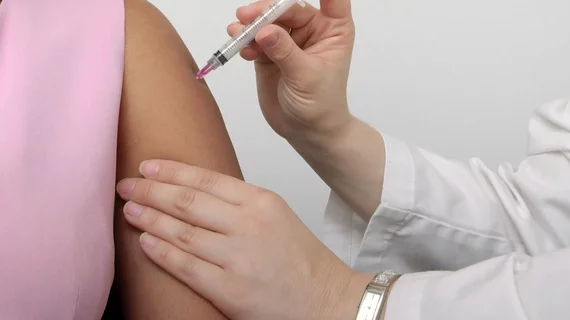American Heart Association supports latest COVID-19 vaccine recommendations, including 'mixing and matching' of booster shots
The American Heart Association (AHA) has announced its full support of new CDC recommendations that urge all adults who received the Moderna and Johnson & Johnson COVID-19 vaccines to seek out an additional booster dose.
The booster shot can be any of the FDA-approved vaccines: Moderna, Johnson & Johnson or Pfizer-BioNTech. However, the CDC emphasized, this “mixing and matching” approach only applies to booster shots; if individuals are receiving their initial two doses of the Moderna or Pfizer BioNTech vaccine, they should not switch from one to the other.
The CDC’s recommendations also cover more specific situations. For instance, adults who previously received one dose of the Johnson & Johnson vaccine are eligible for a booster shot just two months later.
“Recently published research of the mix and match approach to the COVID-19 vaccines booster doses, reviewed by the FDA and CDC, revealed strong immune response after an additional COVID-19 vaccine booster dose regardless of which COVID-19 vaccine was originally received,” according to the AHA statement. “Please consult with a healthcare professional if you have any questions about whether a booster dose of a COVID-19 vaccine is appropriate for you or a loved one. We continue to recommend that all adults and children ages 12 and older in the U.S. receive the COVID-19 vaccine as soon as they can.”
The AHA also highlighted its supports of other CDC safety recommendations related to the ongoing pandemic. Protective masks should still be worn when indoors, for example, and social distancing is still recommended.
“The COVID-19 vaccines are highly effective and fundamental to saving lives, protecting our families and loved ones against COVID-19, and ending the COVID-19 pandemic,” according to the AHA.
Click here for the full AHA statement.

